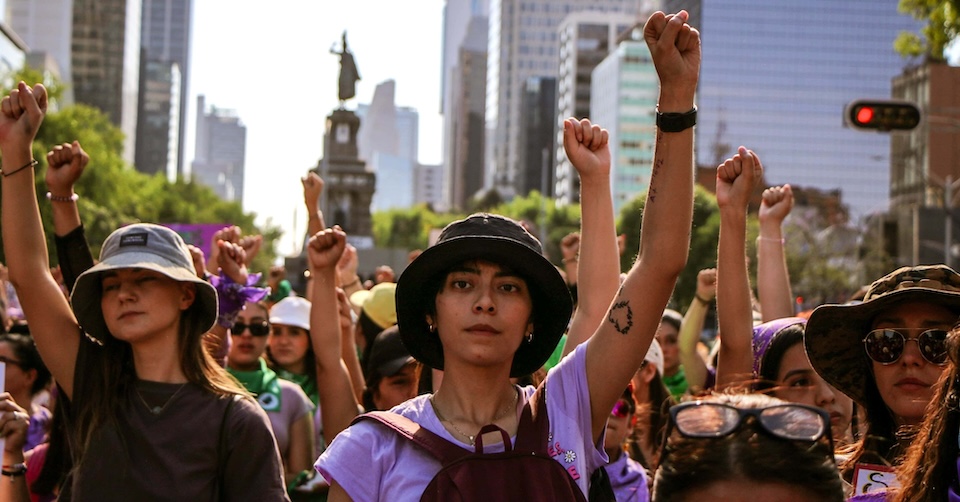
The constant threat of physical, digital, or psychological harm means that poor wellbeing and resilience is a very real danger among rights defenders and grassroots activists, particularly those working in closed civic spaces or violent environments. In these situations, Psychological First Aid (PFA) is an effective initial psychosocial intervention, providing emotional and psychological support in the immediate aftermath of serious events.
PFA is an evidence-informed framework to help people who have been exposed to traumatic events, such as conflict or disaster. Its primary aim is to reduce the initial distress. It can also help to foster short- and long-term coping behaviours, and reduce the occurrence of post-traumatic stress disorder (PTSD).
What sets PFA apart from traditional interventions is that you do not need to be a mental health professional to use it. Instead, peers trained in PFA can provide co-workers with information on common responses to difficult experiences, offer practical help, and assess if they may require additional support. This makes PFA a critical first line of support in the immediate aftermath of a potentially-traumatic event.
Psychological First Aid is critical for rights defenders at risk
People affected by trauma can experience a wide range of early reactions: flashbacks, feelings of guilt or loss, avoiding the area of an incident, headaches or migraines, feeling jumpy, and lack of concentration, to name a few. While normal, these reactions can significantly impair an individual’s ability to cope with the immediate challenges presented by the disaster or engage in the adaptive behaviours necessary for recovery.
PFA focuses on several core actions that can help someone start the recovery process. This process is critical for social movements, both for the at-risk rights activists and the international partners that support them. PFA improves their resilience, empowering them to deal with crises self-sufficiently – at least in the early stages. In this respect, PFA can be described as a tool to increase sustainability and to help grassroots activists and those who support them resist attacks and reprisals.
PFA works to alleviate distress in the wake of traumatic events and to foster a supportive and healing environment. Those trained in PFA are able to offer immediate support, acknowledging and normalising the wide range of reactions to trauma and reducing feelings of isolation. They can also introduce simple self-care and stress management techniques, such as breathing exercises and grounding methods, to help activists cope with and recover.
Open Briefing’s team has widely used PFA to help activists in the wake of traumatic events, including when they and their family members have been targeted by state adversaries following a high-profile event, for example. It can also help those affected by war and forced displacement. Open Briefing wants to encourage more rights defenders and grassroots activists – and their international partners – to train in PFA in order to help their colleagues re-build connection, support, and collaboration following traumatic events.
Providing Psychological First Aid
Look, Listen, Link is one way of delivering PFA that does not require formal mental health training. This approach involves three stages:
1. Look
First, you should establish what has happened and who has been affected.
You should also ensure that you are up to date on developments and aware of other sources of support that may be available.
Several questions may help establish the facts:
- What happened?
- When and where did the event occur?
- How many people are affected and who are they?
- Will others need information?
- Who is meeting basic needs (e.g. medical care, food, water, and shelter)?
- Where and how can people access those services?
- What other dangers in the local environment (e.g. armed groups, landmines or damaged infrastructure) may exist?
2. Listen
Next, you should initiate conversation and stabilise those affected. You will find it helpful to use active listening and other appropriate communication skills and share information and knowledge.
This might look like:
- Initiate contact in a culturally appropriate manner.
- Explain what you are there to do (and not do).
- Give the latest update about the situation.
- Ask about immediate needs.
- Speak calmly, with empathy and compassion.
- Use grounding techniques to help you both cope with post-traumatic stress disorder and anxiety.
- Provide basic information on coping strategies.
- Advise on what not to do (e.g. isolating or using drugs and alcohol).
3. Link
Lastly, follow up and connect people with further sources of support; however, hold appropriate boundaries and conclude contact.
Things that you can do include:
- Help those affected access practical assistance (e.g. food, clothing or making a phone call).
- Connect them directly to additional services (e.g. medical, legal or social services).
- Allow them to make decisions and regain control while protecting them from unnecessary risks.
- Encourage them to use immediately accessible support.
- Facilitate access to primary support networks (e.g. friends, family, and colleagues).
- Make referrals to clinical support, if needed (e.g. counselling or trauma support).
Remember, providing PFA and other support to those affected by traumatic events may impact you, including through vicarious – or secondary – trauma. Following proper self-care will help you stay healthy and resilient and better able to provide support to others. For more information, please access our multilingual guides to Psychological First Aid and self-care or ask us about our PFA training.
Resilience is resistance
For rights defenders and grassroots activists, wellbeing is not just personal – it is a collective asset. PFA builds an individual’s resilience to traumatic events, strengthening their ability to recover and sustain their activism. At the same time, it also has the potential to strengthen relationships within movements and organisations by destigmatising mental health and promoting empathetic communication. Fostering resilience at both an individual and collective level is an important act of resistance.